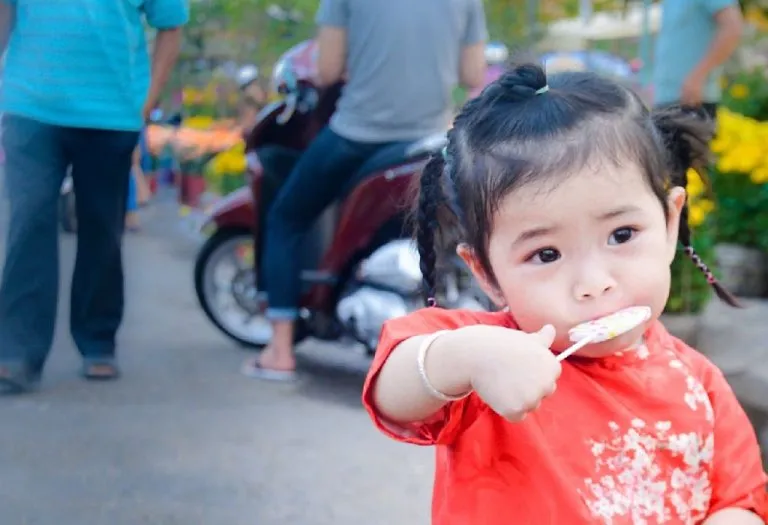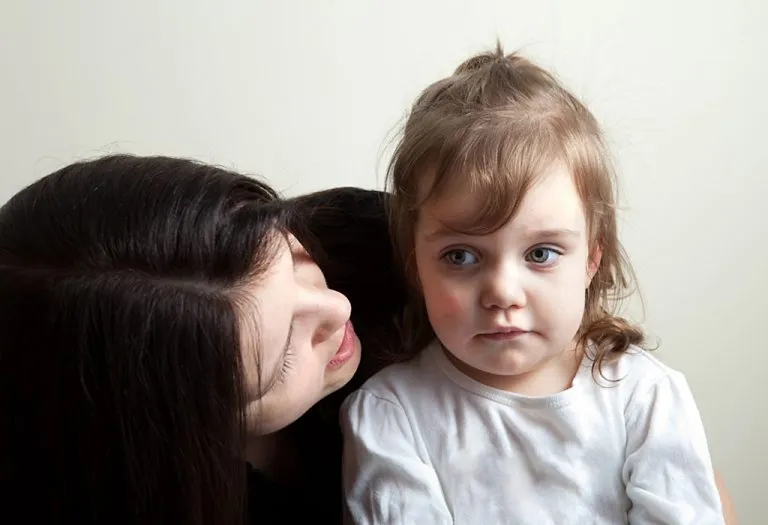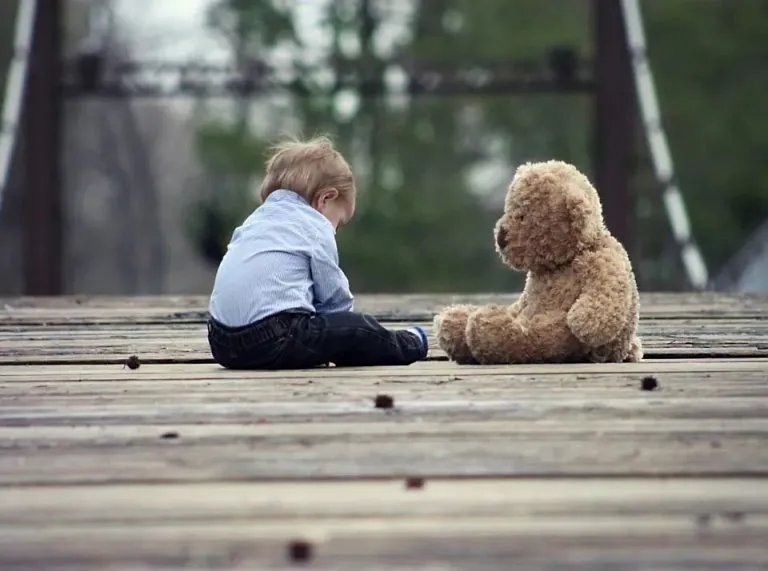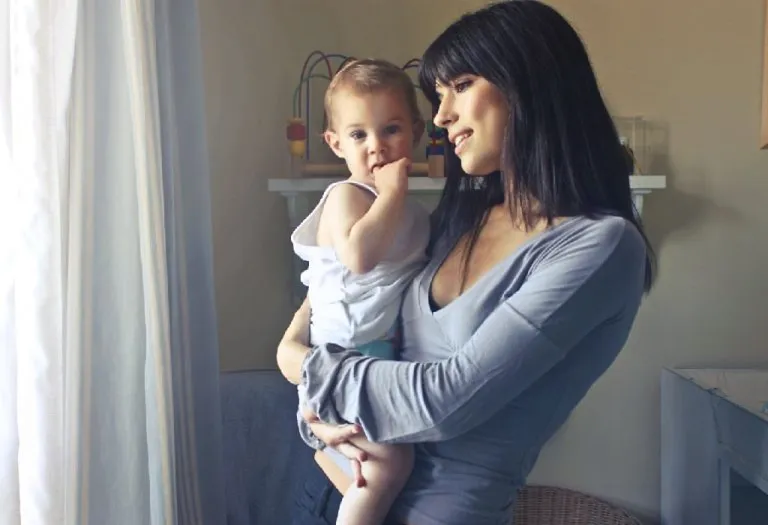What is the Impact of Nature and Nurture on Child Development?

There have been debates amongst various psychologists and biologists regarding what may influence a child more, in terms of nature or the environment around them. Nature vs nurture in child development has long been a topic of interest and contention. If you want to know how nature and the way you nurture your child impact their behavior, then read the following article. This exploration into the intricate balance of genetic predispositions and environmental factors aims to provide a deeper understanding of child development. Discover the key elements that shape a child’s growth and learn practical insights into fostering a positive developmental environment.
Understanding Nature and Nurture
How do nature and nurture affect child development? In simple words, if we define nature and nurture in child development, it can be summed up as follows:
Nature
Nature refers to the hereditary factors or the genes of a child, which not only defines a child’s physical appearance but also helps in building a child’s personality traits.
Nurture
On the other hand, nurture refers to various environmental factors that impact our personality traits, our childhood experiences, how and where the child is raised, social relationships, and culture.
Various branches of psychology take a different approach towards nature and nurture. Where some believe it is predominately the nature that is responsible for shaping up a child’s behaviour, others believe it is the way a child is nurtured, which marks his behavioural characteristics. In the past, it was believed that nature was more important but recently most experts lay stress and importance on both, the nature and the nurturing ways on the behaviour of a child.
Nature vs Nurture in Early Child Development
We shall now be discussing various aspects of a child’s behaviour and the influences of these aspects, in other words, let us see the difference between nature and nurture in child development:
1. Sleeping
Let us see how nature and nurture impact the sleeping of a child.
What is Expected Nature?
If your child is a peaceful sleeper or if he keeps waking up at night, it may be because of his genes. In a study conducted on identical and fraternal twins, it was observed that genes play a significant role in the sleeping pattern of a baby. It was seen that almost all identical twins had the tendency of waking up during the nights, but they also shared the same napping patterns. However, fraternal twins exhibit less tendency of waking up at night in comparison to identical twins.
How to Nurture?
It was observed, that if a baby does not sleep properly, his sleeping schedule can be improved by you to induce better sleep. According to one study, it was observed that babies who were exposed to a significant amount of daylight during the day, slept better at night in comparison to babies who were not. This is because exposing the babies to sunlight is beneficial in regulating their sleeping and waking schedule. Apart from this, some simple changes in your kid’s bedtime routine such as no distractions before sleep-time, quiet surroundings, playing soft music, are some of the things that may help in inducing better sleep.
2. Crying
If your baby cries incessantly, you will wonder if that is because of his nature or this is a habit that he has developed, due to his way he is nurtured. Find out how nature and the way you nurture your child affects his cries.
What is Expected Nature?
Babies cry to get attention from their parents so that their needs are taken care of. While some babies are easy to calm and soothe, others may make their parent’s life miserable with their wails. Genetics plays an important role in the way your baby cries. Many researchers believe that almost 60 per cent of the temperament of your baby is hereditary.
How to Nurture?
The good news for parents is that babies are born with a calming reflex and it is not difficult to achieve. Most babies respond well to swaddling, rocking, swaying, swinging, and even sucking (offering breast or bottle). You may try any of these methods to calm and soothe your crying baby. Every baby is different, and thus, you may have to establish what works best for your baby.
3. Socializing
Is your baby comfortable in the company of strangers or gets frantic as soon as he sees some unfamiliar faces? This too may be because of either his nature or the way he is nurtured.
What is Expected Nature?
If your baby is highly social and loves the company of people or if he is extremely shy and feels awkward in the company of strangers, then in most cases it is due to the inherited genes. In one of the studies published, it was stated that inherited temperament is what makes your baby act in a certain way.
How to Nurture?
For babies, who are comfortable in being in the company of others, you as a parent need not do much. However, babies who are socially awkward, you may really have to put in some effort to make them feel comfortable in the company of strangers. You may try taking them on play dates or encourage your baby to interact and try various such things. However, it is a complete no-no to force your baby to do anything which he may not be comfortable with. Doing so may have adverse effects, and he may further become wary of strangers.
4. Eating
It may sound weird but your kid’s eating habits and food preferences may be inherited too and some he may develop. Know how nature and how you nurture your child impact his eating habits:
What is Expected Nature?
Eating habits of your baby may be genetic too. If some babies are slow eaters and others love to guzzle on, it is because of their genes. Even after making constant efforts to feed a particular food to your baby, if your baby still despises that food, it may be his genes into action. In a study conducted on identical and fraternal twins, it was observed that food aversions may be genetic.
How to Nurture?
If your child is a fussy eater, you can do a lot to make your baby to eat a particular food. The first and foremost thing is to understand that mealtimes should be fun and your baby should look forward to it. Always introduce one food at a time, as offering too many tastes and foods at the same time may confuse your baby’s palate. It is very normal for babies to make funny faces whenever a new taste is introduced. Practise patience whenever it comes to introducing a new food to your baby.
5. Moving
If your baby likes to be in motion all the time or if he is laid back and does not like to move around much, this may be because of his genes or the way he is nurtured.
What is Expected Nature?
It is seen that babies who are more active or like to move around much are that way because of their inherited genes. Similarly, if your baby is more relaxed and sedentary, then it because his genes are making him do so. In a study, it was established that active babies grow up into active adults whereas relaxed babies may remain the same as they grow up.
How to Nurture?
You may do a lot in terms of helping your baby to be more active. You may involve him in various activities and games, give him various kinds of toys to play and do other such things. It is also important to give your baby enough tummy times during his early months.
Interaction of Nature and Nurture
In the present scenario, various developmental psychologists are of the opinion that apart from how nature and nurture affect physical development in childhood, the human development also depends on social factors such as socio-environmental, socio-economic, and cultural factors. All of us are born with specific genetic traits and are nurtured in different environments and thus we all develop different traits. However, how we react to the various environmental factors is determined by our genetic factors too. This may indicate that these factors are co-dependent.
Some examples of nature and nurture in child development may make the above-mentioned statements clearer. For example, if a child is born to the tall parents, but he is not nurtured properly or receives improper nutrition, then he may not grow tall in spite of having taller genes in him. Similarly, a child may have the ability to understand music because of his genes, but the genes alone will not make him a musical genius; he will have to undergo training from an early age.
Role of Nature and Nurture in Child Growth
Understanding child development involves exploring how genetics (nature) and environmental influences (nurture) interact to shape various aspects of growth, from brain development and emotional well-being to social skills and physical growth. This table highlights the roles of nature and nurture in different facets of a child’s developmental journey.
| Aspect | Nature | Nurture |
| Brain Development | Basic brain structure is determined genetically and forms at birth. Genetic predispositions affect brain growth. |
Early experiences influence the development of neural connections. Quality of care and stimulation impacts brain development. |
| Physical Growth | Genetic factors influence height and body build. | Nutrition, exercise, and healthcare play key roles in physical development. |
| Learning Phases | Children possess innate language learning abilities. | Exposure to different languages can enhance bilingual skills. |
| Sensory Learning | Natural sensory preferences contribute to learning. | Varied sensory experiences enrich learning opportunities. |
| Emotional Growth | Genetic temperament traits, like being easy-going, influence emotional responses. Inherited mood tendencies impact emotional well-being. |
Caregiver responsiveness and life experiences shape emotional security. Positive or negative experiences affect emotional development. |
| Challenges | Genetic susceptibilities (e.g., ADHD, ASD) influence development. | Environmental factors (stress, trauma) can exacerbate challenges. |
| Social Skills | Inborn social tendencies shape early social interactions. | Caregiver and peer interactions significantly influence social skill development. |
Nature vs Nurture in Siblings and Twins
Have you ever wondered why children raised in the same home can be so different from each other? Let’s delve into the intriguing dynamics of siblings and twins to gain a better understanding.
1. For Siblings
Nature
- Just as every child has a unique fingerprint, they also possess unique genetic codes.
- Siblings typically share only about 50% of their genes. This genetic variation means each child can inherit different traits from their parents.
- Think of genes as a recipe: even with the same ingredients (genes from parents), the results can vary greatly!
Nurture
- Every child, including twins, has distinct experiences.
- A firstborn may benefit from more one-on-one time with parents, while younger siblings might learn by observing their older siblings.
- These varied experiences significantly shape their personalities and behaviors.
For Twins
- Identical twins originate from the same egg and share nearly 100% of their genes.
- Despite this genetic similarity, they can still develop differences in personality, preferences, and dislikes.
Bridging the Gap Between Nature and Nurture With Epigenetics
Epigenetics explains how our environment interacts with our genes. Even with identical genes, such as in twins, epigenetic factors can lead to subtle differences.
Why Does It Matter?
Think of genes as a book that doesn’t change, but epigenetics adds notes and highlights based on our experiences, like diet and stress. These notes influence how the genes are expressed without altering the original genetic code.
The Takeaway for Parents
Parents can positively impact their child’s genetic expression. By providing a nurturing and supportive environment, you can help shape how your child’s genes are expressed and influence their overall development.
FAQs
1. How does the nature vs nurture debate impact parenting strategies?
The nature vs nurture debate influences parenting strategies by highlighting the importance of both genetic predispositions and environmental factors in a child’s development. Parents can use this knowledge to create a balanced approach that considers their child’s innate traits while providing enriching experiences and a supportive environment. This means recognizing and nurturing a child’s natural abilities and temperament, while also offering opportunities for growth and learning through positive experiences, education, and social interactions.
2. Can the impact of nature vs nurture change over time in a child’s life?
Yes, the impact of nature and nurture can change over time in a child’s life. Early childhood experiences are crucial as they can significantly shape brain development and behavior. However, as children grow, new experiences and environments continue to influence their development. Adolescence and adulthood can bring new challenges and opportunities, which can further modify how genetic predispositions are expressed. This dynamic interplay means that both nature and nurture continuously interact throughout a person’s life, affecting their growth and development at different stages.
From the above information, we hope you now have a clear understanding of what a kid inherits from his parents and how you can help nurture it. These two factors play a key role in shaping up his behaviour, so pay attention to your child’s behaviour.
References/Resources:
1. Common Genetic Factors Found in 5 Mental Disorders; NIH; https://www.nih.gov/news-events/nih-research-matters/common-genetic-factors-found-5-mental-disorders
2. Pain. O, Hodgson. K, Trubetskoy. V, Ripke. S, et. al.; Identifying the Common Genetic Basis of Antidepressant Response (Biological Psychiatry Global Open Science); Science Direct; https://www.sciencedirect.com/science/article/pii/S2667174321000859; April 2022
3. Levitt. M; Perceptions of nature, nurture and behaviour; Life Sciences, Society and Policy; BMC; https://lsspjournal.biomedcentral.com/articles/10.1186/2195-7819-9-13; December 2013
4. How do nature and nurture affect my child’s development?; NCT; https://www.nct.org.uk/baby-toddler/emotional-and-social-development/how-do-nature-and-nurture-affect-my-childs-development
5. Nature vs. Nurture Child Development: Exploring Key Differences; Maryville University; https://online.maryville.edu/blog/nature-vs-nurture-child-development/
6. Sravanti. L; Nurture the nature (Indian Journal of Psychiatry); National Library of Medicine; https://www.ncbi.nlm.nih.gov/pmc/articles/PMC5659093/
7. Wachs. T, The Nature and Nurture of Child Development (Food and Nutrition Bulletin); Sage Journals; https://journals.sagepub.com/doi/10.1177/156482659902000103; January 1999
Also Read:
Types of Play for Child Development
Child Growth and Development Stages
Role of the Family in a Child’s Development
Importance of Play in Your Child’s Development
Factors That Affect Growth and Development in Children
Was This Article Helpful?
Parenting is a huge responsibility, for you as a caregiver, but also for us as a parenting content platform. We understand that and take our responsibility of creating credible content seriously. FirstCry Parenting articles are written and published only after extensive research using factually sound references to deliver quality content that is accurate, validated by experts, and completely reliable. To understand how we go about creating content that is credible, read our editorial policy here.
















.svg)
















